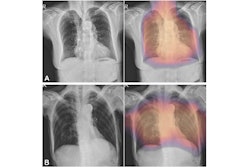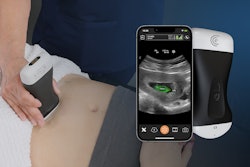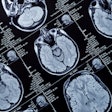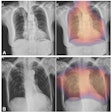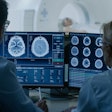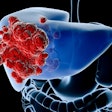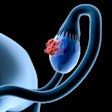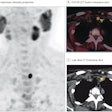A team of 32 radiologists and 36 radiographers are limbering up to work at the summer Olympics, which begins July 25. They are likely to perform more than 1,800 scans on injured athletes.
“Inspired by previous games, we’ve decided to set up a confidential space in order to encourage exchanges between the radiologist, the athlete, and their supervisors after the imaging examination,” Jérôme Renoux, MD, the man in charge of the medical imaging service at Paris 2024 told AuntMinnieEurope.com. “Clinical information is essential to refine the diagnosis, but we must also understand the sporting issues in order to adapt the athletes’ care.”
Based on data from previous summer Olympics, he said he anticipates that around 1,860 scans will be performed on the 10,400 or so competitors from 206 nations. Renoux, who works as a musculoskeletal (MSK) radiologist at France’s National Institute of Sport, Expertise, and Performance (INSEP), estimates that 900 MRI exams, 600 ultrasound scans, 300 x-rays, and 60 CTs will be carried out during both the Olympics (July 26 to August 11) and the Paralympics (August 28 to September 8).
 The polyclinic in Saint-Denis can accommodate around 700 patients a day. Photo courtesy of Jérôme Renoux, MD.
The polyclinic in Saint-Denis can accommodate around 700 patients a day. Photo courtesy of Jérôme Renoux, MD.
The imaging department at the polyclinic will be equipped with two mobile MRI scanners (Ingenia, from Philips), three ultrasound machines (Aplio i800, from Canon), and one x-ray system (from Primax International). In addition, a mobile CT unit will be located outside the Olympic Village, next to the velodrome for cycling.
Renoux will be assisted by fellow MSK radiologists Michel Daoud Crema, MD, and Loris Moya, MD.
The three of them will each work in the polyclinic for around 20 days during the whole period. A typical day will last at least eight hours, but the many emergencies mean they will probably work for up to 12 hours on some days.
“The joy of being part of this event and the commitment to the sporting project of each athlete will keep us busy full time. I think the day will pass quickly!” he said. “During the games, everything changes. Athletes have prepared their whole lives for this event. Imagery must accompany them in their project, sometimes despite their injuries. It’s a privilege to be able to have this role at such a time.”
Renoux and Crema both attended the Tokyo Olympics, working as part of the medical staff of the French Olympic team. “Tokyo was a fantastic experience! The Japanese did their utmost to organize a superb event, despite the health context (COVID) at the time. They set very high standards and to succeed them will be very challenging,” Renoux commented.
Renoux has accompanied the French team to the Olympics since London 2012, and since 2006, he has also been part of the radiology team covering the French Open tennis tournament at Roland Garros. His team has also been involved in soccer and rugby World Cups and basketball championships.
 Jérôme Renoux, MD, investigates a potential injury to a French athlete during the Tokyo 2020 Olympics. Image courtesy of Michel Daoud Crema, MD.
Jérôme Renoux, MD, investigates a potential injury to a French athlete during the Tokyo 2020 Olympics. Image courtesy of Michel Daoud Crema, MD.
“I also share the daily lives of athletes outside of competition periods,” he said. “It is very interesting to follow their evolution, the doubts they may encounter. It makes them even more endearing to discover behind the scenes.”
INSEP is a public institution whose work is overseen by the Ministry for Sports. Established in 1945, it is both a benchmark elite Olympic and Paralympic training center as well as an influential group in elite sport policy in France.
The institute offers support and individually tailored training programs, medical care, research, and psychological support, as well as training and professional reorientation. “Every day, athletes’ programs are studied, remodeled, and improved,” INSEP notes on its website. “Each year, the institute reiterates its goal of optimizing all areas to maximize the achievement of French athletes, enabling them to reach the top of the podium.”
To obtain useful data and analysis from the Games, the plan is to establish a research center co-directed by Crema from INSEP, Bruce Forster, MD (head of MRI for the Vancouver Coastal Region and director of medical imaging at Vancouver General and UBC Hospitals, Canada); and Ali Guermazi, MD, PhD, (chief of radiology at the VA Boston Healthcare System, director of the Quantitative Imaging Center, and assistant dean of diversity and inclusion at Boston University School of Medicine).
Nearly 3,000 volunteer health professionals and 8,000 first-aid staff will work at the Olympics, according to a recent interview with emergency physician Pierre Mauger, MD, head of medical services for Paris 2024. “We recruited a local sports doctor in each city who already has a network of dentists, radiologists, laboratories, and MRI facilities. If athletes need simple care, they can go to this practitioner. If they need more acute care, they will be referred to the local hospital,” he explained.





